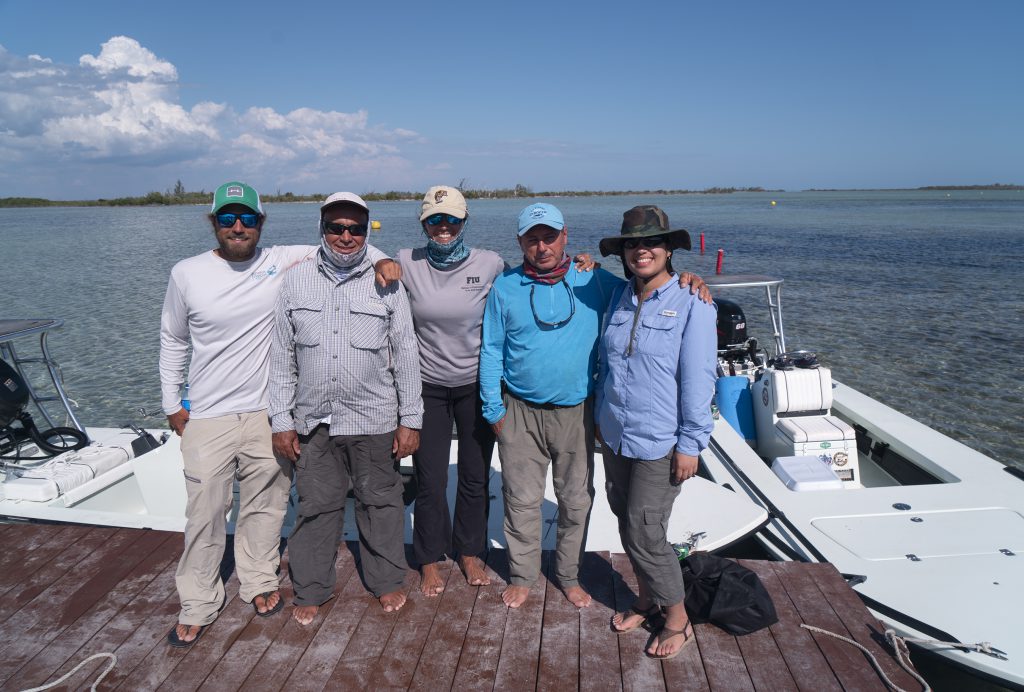FIU fish ecologist Jennifer Rehage (center) poses with Dr. Ross Boucek (Bonefish Tarpon & Trust), and colleagues at the University of Havana in Las Salinas, Cuba, one of the Caribbean’s most prominent fishing sites. Photo by Richard Kern.
Anglers in South Florida are catching fewer bonefish. FIU scientists believe answers could be found in Cuba.
Bonefish eggs float in the ocean for two months before they settle in nurseries. Models suggest spawning bonefish in Cuba may supply South Florida’s nurseries with eggs. If true, that means sustainable fisheries here may rely on sustainable fisheries there. Knowing what fisheries look like in underdeveloped areas like Cuba could help guide restoration efforts.
“On the flipside, our stressed South Florida environment provides a cautionary note of tourism development in places like Cuba,” said Jennifer Rehage, a fish ecologist in FIU’s Southeast Environmental Research Center and associate professor in the Department of Earth and Environment.
Rehage studies how changes in the environment affect bonefish, snook, tarpon and other valuable fish in the Florida Everglades and Florida Keys. She is a collaborator with Bonefish & Tarpon Trust, the non-profit behind the bonefish spawning models. Rehage recently attended the International Workshop Fishing, Pollution and Environment in Havana alongside other scientists, business people and policy makers to talk about the need for the sustainable development, use and management of Cuba’s marine resources and coastal ecosystems. She gave a presentation on Florida’s bonefish fishery and what has led to its decline, including habitat degradation and loss. Rehage also went on a field visit to Las Salinas, one of the Caribbean’s most prominent fishing sites. She spoke with fishermen and fishing guides about bonefish ecology and met with researchers from the University of Havana to learn about tarpon ecology around the island.
Cuba’s extensive coral reefs and unique wildlife make it one of the Caribbean’s most biologically diverse islands. It is also one of the world’s last communist dictatorships. Lack of economic development for the past 70 years has kept many of its natural environments intact. But, recent easing of travel restrictionsfrom the U.S. could boost its flagging tourism industry. Rehage hopes to work with colleagues in Cuba in the future so they can learn from each other and inform conservation priorities.
This article by Evelyn S. Gonzalez originally appeared in FIU News.




